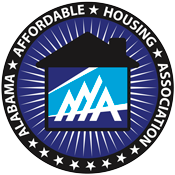
CARH’S BROADCAST E-MAIL – Member Update
Yesterday, CARH together with seven other associations representing various aspects of the affordable housing industry jointly submitted an amicus (a friend of the court) brief to the U.S. Supreme Court on a case that could help to determine what constitutes discrimination under the Fair Housing Act (FHA). (Click here for a copy of the amicus brief.) The U.S. Supreme Court is scheduled to begin oral arguments on January 21, 2015, on a case that questions the legality of the Texas Department of Housing and Community Affairs’ (TDHCA) allocation of Low-Income Housing Tax Credits (LIHTC).
The case originated when the Inclusive Communities Project, a Dallas based non-profit organization, that works for the creation and maintenance of thriving racially and economically inclusive communities, sued TDHCA alleging that the agency was discriminating against minority populations by disproportionately approving too many LIHTCs in minority areas and too few in non-minority areas, causing a disparate impact on a protected class.
Important questions have been raised in this case regarding the scope of the FHA—whether it creates liability with respect to facially-neutral policies that have a disproportionate effect, or “disparate impact,” on members of classes protected by the FHA. Over the life of the FHA, many federal district and appellate courts have concluded that the FHA creates disparate impact liability where, in the absence of evidence of intent to discriminate, neutral policies and practices disproportionately impact members of the classes protected by the FHA compared to the population at large. Disparate impact cases are distinguished from “disparate treatment” cases, which require a showing of intent to discriminate against members of protected classes.
Further, the Department of Housing and Urban Development’s 2013 Discriminatory Effects Rule supports many of the courts positions, creating new and unique challenges for the housing industry. For instance, many policies and practices such as the use of criminal background screening could be seen as violating the FHA.
This is the third time in three years that the U.S. Supreme Court has agreed to hear a case on this subject. The other cases were settled prior to oral arguments and so the “disparate impact” questions have remained undecided.
CARH will keep members informed of the outcome of the case. If you have any questions, please contact the CARH National Office at 703-837-9001 or carh@carh.org.
Don’t miss CARH’s 2015 Midyear Meeting
January 26-28, 2015, at Loews Don CeSar Hotel in St. Pete Beach, Florida!
Council for Affordable and Rural Housing
1112 King Street, Alexandria, VA 22314
703-837-9001 Phone; 703-837-8467 Fax
carh@carh.org; www.carh.org
